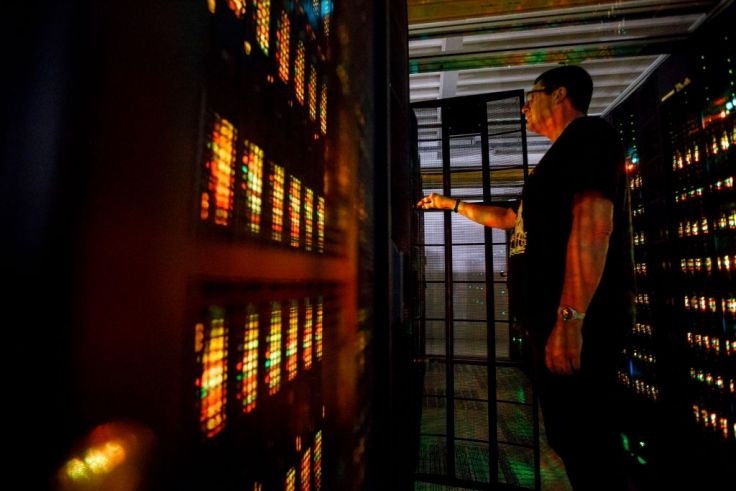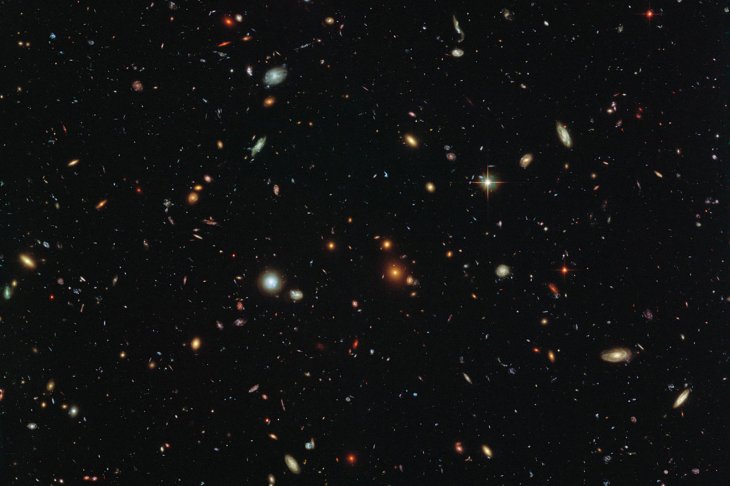This Supercomputer Helps Us See Millions Of Virtual Universes
Anil - Aug 30, 2019

This supercomputer helps scientists in many studies, such as reconsidering existing principles.
- Japan Hydrogen Breakthrough: Scientists Crack the Clean Energy Code with Mind-Blowing 1,000% Efficiency Jump
- 'Five-second rule' For Food Dropped On The Floor: Is It True?
- The First Space Hotel In The World Will Welcome 400 Guests
It is not easy to understand the development of galaxies when the latest illustrations for it could be traced back to billions of years ago. As such, the best way is to simulate as many universes as possible. As for researchers at the University of Arizona, the supercomputer named Ocelote is considered a "UniverseMachine" as it can produce millions of miniature universes to help us assess which one would match most with the real universe.

Instead of trying to demonstrate all aspects of the entire universe, which requires superior computer functions to accurately model the universe, now the team has developed a system of moderate resolution to enlarge the scale from supernovae to extraordinarily large spaces. Accordingly, each virtual universe is separated in terms of sets of rules and characteristics and the only matter behind is to observe which universe simulations match the most with real data.
Within “just” three weeks, the team has created roughly 8 million of simulated universes for research.

This method gives researchers many benefits, including deep understanding of the evolution of the galaxy, as well as reconsider and challenge existing principles. For example, stars might be created in the galaxy much longer than the long-lived thinking of a human. Along with that, star formation based on an existing model may have ended a long time ago, or dark matters might not have much intense reaction to that formation in the early days of the universe.
With the presence of this invention, not all previous knowledge was outdated. Data gaps and more room for sophisticated details will be improved when computer performance is enhanced. However, this is still considered as powerful assistance for science, which took decades or centuries before computers could provide such useful improvements for research.
>>> After Rejection From The US, India Made Its Own Supercomputer, And All Thanks To This Man
Featured Stories

Features - Jan 29, 2026
Permanently Deleting Your Instagram Account: A Complete Step-by-Step Tutorial

Features - Jul 01, 2025
What Are The Fastest Passenger Vehicles Ever Created?

Features - Jun 25, 2025
Japan Hydrogen Breakthrough: Scientists Crack the Clean Energy Code with...

ICT News - Jun 25, 2025
AI Intimidation Tactics: CEOs Turn Flawed Technology Into Employee Fear Machine

Review - Jun 25, 2025
Windows 11 Problems: Is Microsoft's "Best" OS Actually Getting Worse?

Features - Jun 22, 2025
Telegram Founder Pavel Durov Plans to Split $14 Billion Fortune Among 106 Children

ICT News - Jun 22, 2025
Neuralink Telepathy Chip Enables Quadriplegic Rob Greiner to Control Games with...

Features - Jun 21, 2025
This Over $100 Bottle Has Nothing But Fresh Air Inside

Features - Jun 18, 2025
Best Mobile VPN Apps for Gaming 2025: Complete Guide

Features - Jun 18, 2025
A Math Formula Tells Us How Long Everything Will Live
Read more

Mobile- Feb 16, 2026
Xiaomi Launches Affordable Tracker to Compete with Apple's AirTag
For users tired of ecosystem lock-in or high prices, the Xiaomi Tag represents a compelling, no-frills option that delivers core functionality at a fraction of the cost.

ICT News- Feb 18, 2026
Google's Project Toscana: Elevating Pixel Face Unlock to Rival Apple's Face ID
As the smartphone landscape evolves, Google's push toward superior face unlock technology underscores its ambition to close the gap with Apple in user security and convenience.

Mobile- Feb 17, 2026
Anticipating the Samsung Galaxy S26 and S26+: Key Rumors and Specs
The Samsung Galaxy S26 series is on the horizon, sparking excitement among tech enthusiasts.
Comments
Sort by Newest | Popular